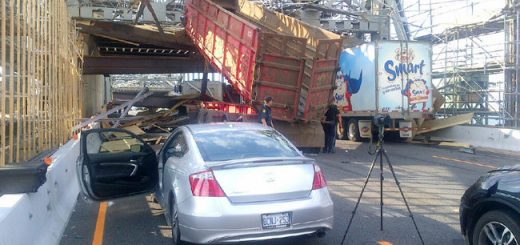Toronto police have reported that drug-related traffic offences rose steeply in 2016—a 300% increase, in fact. While many might jump to the conclusion that marijuana is to blame, they’d be incorrect. Prescription drugs accounted for the majority of these infractions. By September, 58 people had been apprehended, compared to fewer than twenty at the same time in 2015.
Transportation Minister Steven Del Duca spoke out about the problem, highlighting the increase of drug-only or drug-and-alcohol impairment offences. “If you get behind the wheel of a car or any other vehicle,” he said, “you shouldn’t be impaired by anything. Not alcohol. Not drugs.”
The rising numbers were in part responsible for the increased penalties for impaired driving put into effect in October. The penalties have been adjusted to parallel those in place for driving while intoxicated with alcohol. Failing a road side sobriety test for the first time can result in losing one’s license for three days, along with a $180 fee to reinstate their license, as well as steeper penalties. Second time offenders can have their license suspended for seven days on the spot, while third time offenders are faced with an instant 30 day suspension.
Once picked up, drivers will be taken to police stations for a thorough examination by drug recognition experts. These officers are trained to measure blood pressure, body temperature, and other signs that a person might be impaired by drugs.
Drug recognition experts, however, have come under fire from opponents who claim that the training does not reliably teach officers to recognize drug impairment. The Supreme Court of Canada recently agreed to examine a case which deals with the role of drug impairment recognition. If the court rules that drug recognition training does not have reliable results, police will have to scramble to find other ways to confirm impairment.
Drug testing of bodily fluids can also take place. Failing this examination results in a 90 day license suspension, and the driver’s car being impounded for seven days.
Other disciplinary measures available to police include mandated education and drug abuse treatment programs, or ignition locks.
Criminal charges are also still possibility when a driver is found to be under the influence. Criminal convictions can also lead to the loss of one’s license, being fined, or even serving jail time with a maximum sentence of five years.
The newly added penalties aren’t designed to replace the older criminal penalties—they’re simply a way for police to get drug addled drivers off the road quickly.
With the potential for marijuana to become legalized in the near future, there’s more pressure than ever on police to find a way to curb drug impaired driving. This will be especially true if drug recognition is determined by the Supreme Court to be unreliable, as there is no current method for determining whether or not a person is under the influence of marijuana at the time of examination.
Citizens are urged to adhere to the law, not only to avoid civil and criminal consequences, but for their own (and everyone else’s) safety.







